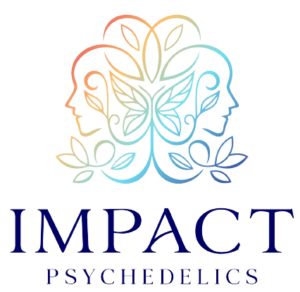Unlocking the Healing Potential: Maximizing Your Ketamine Therapy Journey
In recent years, the field of mental health has witnessed a revolution in the form of ketamine therapy.
This groundbreaking treatment has garnered immense popularity and acclaim for its transformative potential in alleviating treatment-resistant depression, anxiety disorders, and chronic pain conditions.
With Impact Psychedelics leading the way, providing safe and effective psychedelic therapy in the comfort of your own home, individuals now have the opportunity to embark on a profound healing journey.
In this comprehensive guide, we will explore the depths of how to get the most out of ketamine therapy, supported by scientific studies and research, and outline strategies to maximize its benefits.
Understanding Ketamine Therapy
Ketamine, originally developed as an anesthetic, has revealed extraordinary therapeutic properties beyond its traditional use. Unlike other psychedelic substances, ketamine operates on the brain’s intricate neural pathways, inducing a transformative experience that goes beyond mere hallucinations.
Its multifaceted nature empowers individuals to navigate the depths of their consciousness and confront emotional barriers with newfound clarity.
The Science Behind Ketamine Therapy:
Scientific research has shed light on the mechanism through which ketamine triggers remarkable transformations in mental health conditions. By modulating the NMDA receptors in the brain, ketamine infusions promote synaptic plasticity, allowing for the rewiring of neural pathways associated with depression and anxiety. A study conducted by Li et al. (2010) demonstrated that ketamine’s rapid antidepressant effects were linked to its ability to enhance synaptic plasticity and promote the formation of new connections in the brain.
Neuroplasticity and the Rewiring of Neural Pathways
Neuroplasticity, the brain’s ability to reorganize and form new neural connections, plays a pivotal role in the healing potential of ketamine infusion therapy. Research by Kopelman et al. (2023) highlighted the involvement of neuroplasticity in the antidepressant effects of ketamine. The study showed that ketamine treatments not only facilitated the regrowth of neurons but also promoted the formation of new synapses, allowing for the rewiring of neural circuits associated with depression.
The Indications for Ketamine Therapy
Treatment-Resistant Depression (TRD
Ketamine therapy has emerged as a beacon of hope for individuals with severe depression or treatment-resistant depression (TRD), a condition that does not respond to traditional antidepressant medications.
A meta-analysis conducted by Marcantoni et al. (2020) examined the efficacy of ketamine in TRD patients and found that a significant proportion experienced rapid and sustained improvements in symptoms of major depressive disorder following ketamine treatment.
Anxiety Disorders (e.g., PTSD)
In addition to depression, ketamine therapy has demonstrated promising results in various anxiety disorders. Research by Ross et al. (2023) explored the use of ketamine in post-traumatic stress disorder (PTSD) and reported a reduction in symptom severity and increased overall well-being.
Chronic Pain Conditions
Ketamine’s analgesic properties make it a valuable therapeutic tool for individuals suffering from chronic pain conditions. A study by Sigtermans et al. (2009) investigated the use of ketamine in chronic pain management and found that it effectively reduced pain intensity and improved overall quality of life. The study suggested that ketamine’s pain-relieving effects were mediated through its modulation of the NMDA receptors and its anti-inflammatory properties.
Finding a Qualified Ketamine Provider
Researching Ketamine Clinics:
When considering ketamine therapy, it is essential to thoroughly research and evaluate ketamine clinics. Assessing the expertise and credentials of the providers, as well as reviewing patient testimonials and experiences, can help ensure a safe and effective therapeutic journey.
With a proven track record of success, Impact Psychedelics stands out as a reputable provider, offering professional guidance and expertise throughout the entire process.
Check Out The Testimonials of Our Happy Patients!
Importance of a Comprehensive Initial Assessment
A comprehensive initial assessment is a crucial step in the ketamine therapy journey. Understanding your medical history, current mental health status, and treatment goals enables the development of a personalized treatment plan tailored to your specific needs.
Impact Psychedelics places great importance on this assessment process to ensure the best possible outcomes for their clients.
Preparing for Your Ketamine Journey
Open Communication with Your Provider
Establishing open and honest communication with your ketamine therapy provider is vital. By discussing your expectations, treatment goals, and any concerns or questions you may have, you foster a collaborative and supportive therapeutic relationship.
Impact Psychedelics emphasizes the significance of this communication, ensuring that you feel heard and understood throughout the ketamine process.
Lifestyle Adjustments Before Treatment
Prior to beginning ketamine therapy, certain lifestyle adjustments may be necessary. This includes restrictions on alcohol, caffeine, and certain medications that could potentially interact with ketamine. Additionally, maintaining a healthy sleep schedule and diet can contribute to optimizing the therapeutic effects of ketamine.
Our team at Impact Psychedelics provides comprehensive guidance on these lifestyle adjustments to enhance the overall treatment experience.
Emotional and Mental Preparation
Preparing yourself emotionally and mentally for the ketamine therapy journey can greatly impact the outcomes. Developing coping strategies, and mindfulness techniques, and establishing a support network are essential in navigating the emotional depths that may arise during the sessions. Impact Psychedelics recognizes the significance of this preparation and offers support and resources to assist you in this process.
The Ketamine Treatment Experience
Understanding the Different Administration Methods
Ketamine therapy offers various administration methods, each with its advantages and considerations. Intravenous (IV) infusions, intramuscular (IM) injections, and nasal spray (Esketamine) or lozenges are the most common methods utilized.
Setting and Atmosphere:
Creating a serene and comfortable clinical setting is crucial during ketamine therapy sessions. Impact Psychedelics prioritizes the creation of a calming and supportive environment, utilizing elements and resources sensory aids to aid you through the process.
The Importance of Set and Setting
Managing expectations and embracing the unknown are essential components of the ketamine treatment journey. Through intention setting and self-reflection, you can fully immerse yourself in the experience, allowing for profound healing and personal growth. Impact Psychedelics encourages you to embrace the transformative potential of ketamine treatments, providing the necessary support to navigate the journey.
During the Ketamine Sessions
Trusting the Process
Trusting the process and surrendering to the ketamine experience is fundamental to unlocking its full healing potential. By relinquishing control and embracing the journey, you create space for profound insights and transformations to occur. Impact Psychedelics’ experienced therapists and guides support you in developing trust and letting go during the sessions.
Navigating Challenging Moments
Challenging moments may arise during ketamine therapy such as treating depression, anxiety, and chronic pain, and having techniques for grounding and self-soothing is crucial. Our experienced therapists will equip you with strategies to navigate these challenging moments, ensuring a safe and supportive environment throughout the session.
Self-Exploration and Insights
Journaling and self-reflection exercises can be powerful tools for self-exploration and gaining insights during and after mental illness therapy sessions. Recognizing patterns, breakthrough moments, and emotional transformations allows for a deeper understanding of oneself.
Integrating Ketamine Therapy into Daily Life
Post-Session Self-Care Practices
Following ketamine treatment sessions, prioritizing relaxation is essential for integrating the experience into your daily life. Engaging in gentle physical activities, such as yoga or walking, can aid in grounding and promoting overall well-being.
Emotional Processing and Integration
Seeking therapy or counseling for ongoing support is beneficial for processing and integrating the insights and emotions that arise during ketamine therapy. Incorporating mindfulness and meditation practices into your daily routine can foster emotional resilience and self-awareness during PTSD, anxiety, or depression treatment. Impact Psychedelics offers resources and guidance to facilitate emotional processing and integration.
Lifestyle Adjustments for Long-Term Well-Being
To maximize the long-term benefits of ketamine therapy, adopting healthy habits is crucial. Regular exercise, a nutritious diet, and prioritizing quality sleep contribute to overall well-being and resilience. By maintaining positive lifestyle changes, you can sustain the progress achieved through ketamine therapy.
Maximizing the Benefits of Ketamine Therapy
Continued Therapy and Maintenance
Developing a long-term treatment plan and considering follow-up sessions are key to maximizing the benefits of ketamine therapy, such as combatting clinical depression. Impact Psychedelics guides in creating a personalized maintenance plan, ensuring continued progress and support beyond the initial treatment phase.
Combining Ketamine Therapy with Other Modalities
Supplementing ketamine therapy with other therapeutic modalities, such as talk therapy (e.g., cognitive-behavioral therapy) or mindfulness-based practices, can enhance its efficacy.
Exploring Opportunities for Personal Growth
Ketamine therapy opens doors to self-exploration and personal growth. Engaging in creative outlets, pursuing passion projects, and finding purpose in life can serve as catalysts for ongoing healing and transformation.
Harness the Power of Ketamine Treatment With Impact Psychedelics
Ketamine therapy holds immense promise in unlocking the healing potential within individuals struggling with treatment-resistant depression, anxiety disorders, and chronic pain conditions.
Backed by scientific research and supported by our trained healthcare providers, this transformative journey offers an opportunity to transcend limitations and embrace profound healing.
By understanding the science behind ketamine therapy, preparing for the experience, and integrating it into daily life, you can maximize its benefits and unlock your true potential for healing and growth.
Embrace this remarkable journey, and start on a path towards a brighter and more fulfilling future.




